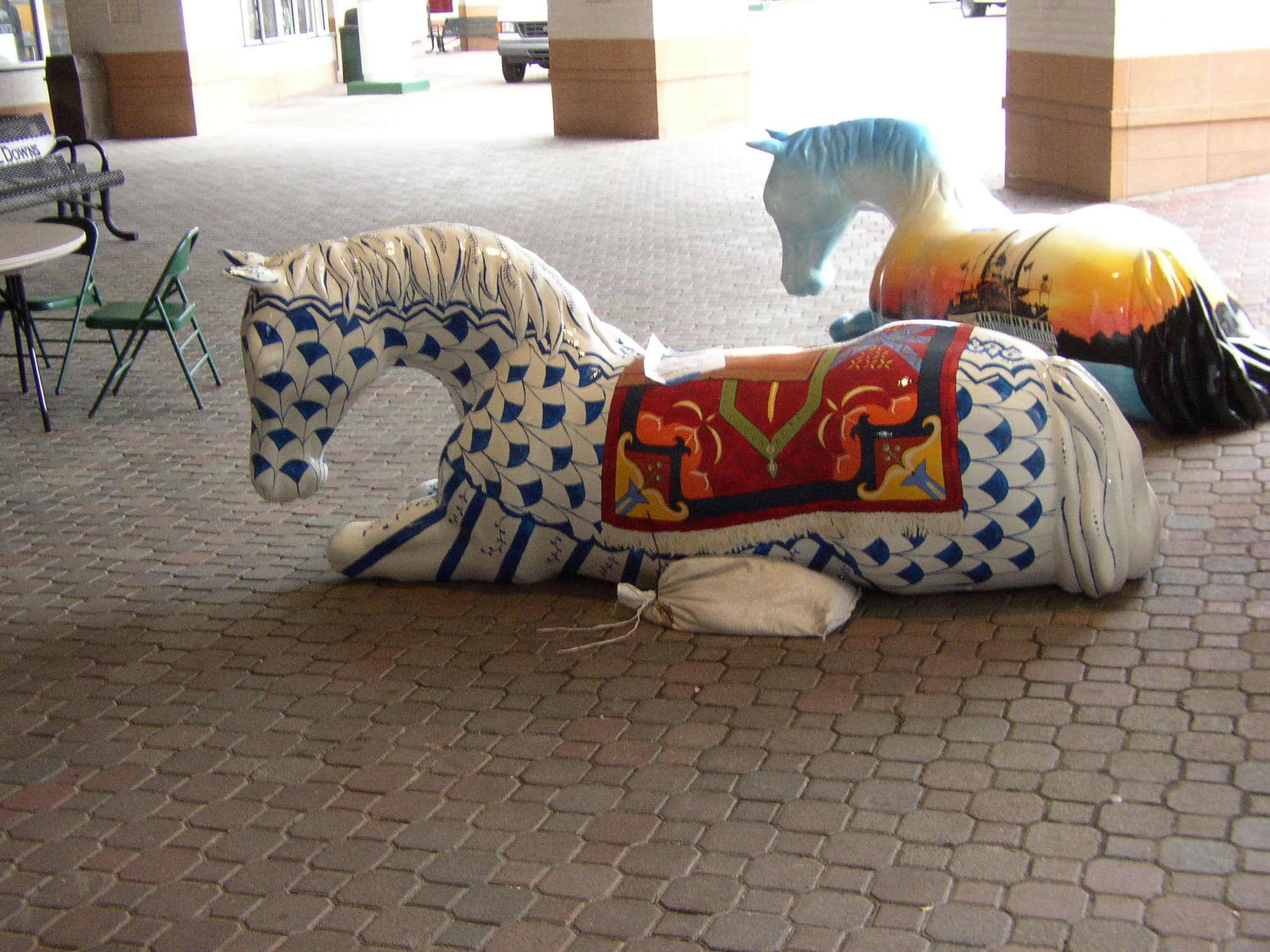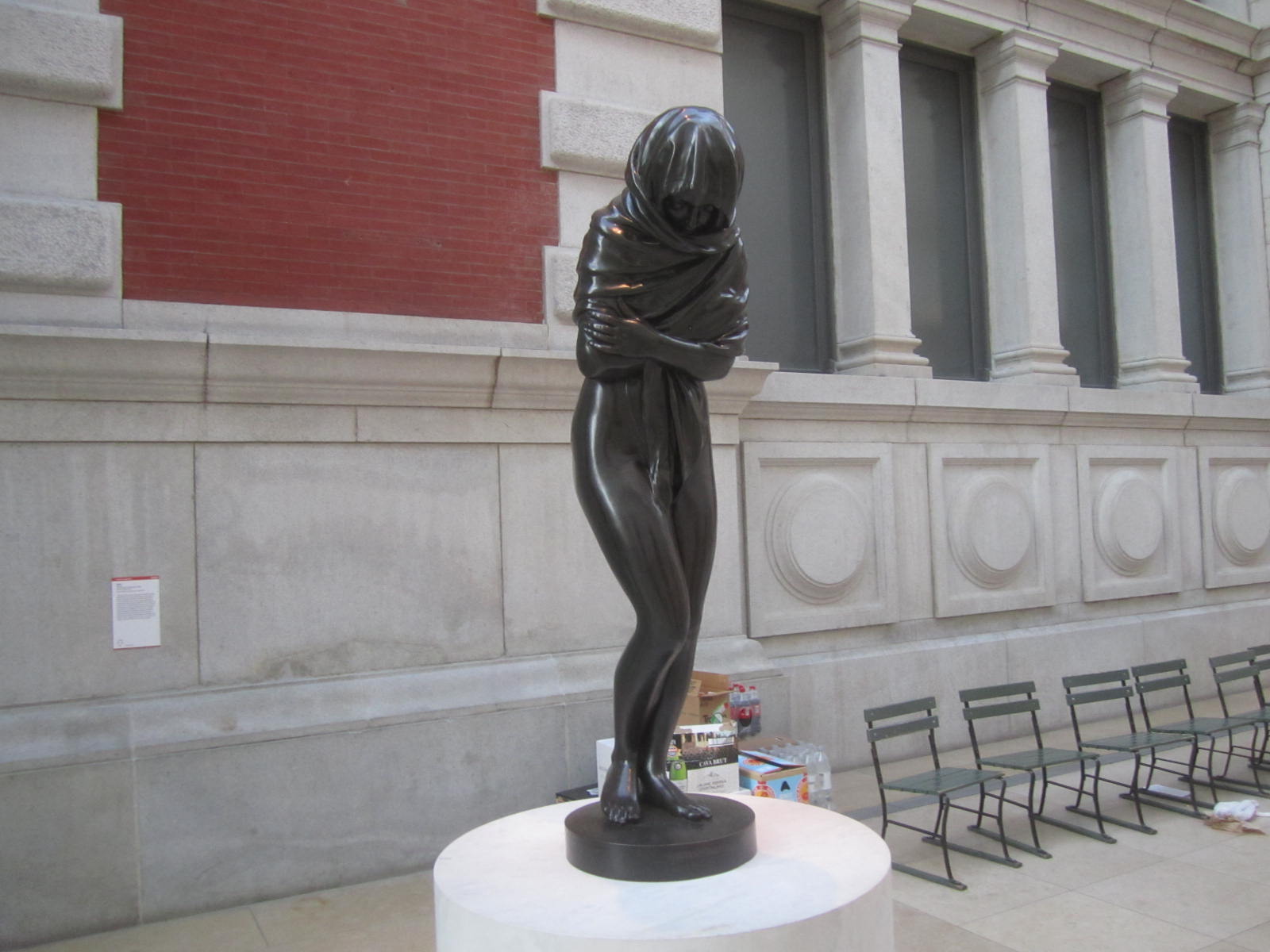Don’t Give Up
A long, long time ago I learned a very valuable lesson about adversity. I was in middle school and just like many things for kids that age, I didn’t understand its impact on my future way of thinking.
This may surprise many of the people who know me now, but when I was in middle school I was a tiny little boy. In fact, I thought I was going to be four foot two inches tall for the rest of my life. I always had an appetite, but for some reason I was always rail thin. No one would mistake me for a poster child of athletics.
I was also a child who never had too much confidence in myself. I’m not sure if that came from all the teasing my Dad did with me or some belief I picked up somewhere along the way that one should never brag about one’s self. So I tended to just blend in with the crowd.
Middle school is tough. You are basically divided into three groups: the populars, the unpopulars, and those in the middle who didn’t want to be in either one of those crowds, especially the unpopular crowd. I was one of those middle people.
The other thing that was very uncomfortable about middle school was gym. You had the tough boys, the athletic boys, the nerds, and the uncoordinated ones. I was part of a middle group. I wasn’t uncoordinated, but I was always afraid I would come across that way if I tried too hard. I also didn’t feel I was ever good enough to be a star and figured I would be laughed out of town if I even made an effort in that direction.
One day in gym class, the gym teacher came up with the brilliant idea of having a wrestling tournament. I guess we were learning to wrestle at the time. Great, that sounded like a definite recipe for embarrassment.
The teacher grouped us in groups of like-sized boys. As luck would have it, my first match was against one of the most popular and most athletic boys in the whole school. My thought was: “I might as well lay down on that mat and die.”
Since we had been studying wrestling, we were aware of the wrestling point system. You got so many points for different moves. But none of those points mattered if you pinned (got your opponents shoulder blades on the mat for three straight seconds) the opponent. Like most sports, there was an area where the action took place. If you stepped out, slid out, or crawled out of that area, your opponent would also get a point, but the match would go on.
As our match began, I seriously thought about just standing around the edge and as soon as my opponent came close to me, I’d just step out of bounds. Sure, my opponent would get a point, but if I move around quick enough I wouldn’t lose but a few points. Then maybe my opponent would tire and I might be able to surprise him. But there is one thing worse than being branded unpopular in middle school, and that is being branded a coward. Running around the mat like that would surely appear cowardly.
When you are in the middle of a wrestling match, time, rules, and counting points seem to just fly out the window. It all comes down to survival and trying as hard as you can not to embarrass yourself. Time seemed to drag on forever.
The crowd was really getting into the match. I could hear everyone cheering. I figured that meant I was getting clobbered. After all, I was wrestling one of the most popular guys in school. I was also getting very tired.
I was very close to the edge of the mat when I think I heard the teacher say there was only a little time left. My opponent was on top of me and moving off the edge was a very real possibility to me since I was so close to it. But I figured I was losing so badly that I might as well just give up and let him pin me. I reasoned, “I lasted a lot longer than anyone thought I would.” One pound, two pounds, three pounds went the teacher’s hand on the mat. I was pinned and the match was over.
Humbly I returned to the crowd. One of my friends leaned over to me and said, “You know you were ahead by eight points (which is a lot in wrestling) and there were only a few seconds left. If you got out of bounds, you would have won.”
My opponent went on to win that weight class for the whole school. None of his other matches was even close. I never wrestled again.
Thelma was born in Ely, Nevada, but she grew up in Cerritos, California. Her mother, Katherine Halberstadt, had been married before, but her first husband died in a flash flood in South Dakota. Her mother would bring a daughter, Neva Bender, and a son, Matthew Bender, into the marriage with Thelma’s father. Katherine would also have two sons, William, Jr. and Thomas, with Thelma’s Dad. Her Mom was a German immigrant.
Thelma’s father, William M. Ryan, Sr., was a sailor, gold miner, truck driver, and a farmer. He was from Irish descent and couldn’t be happier that his daughter was born on March 16th, the day before St. Patrick’s Day. He would nickname his redheaded daughter “Pat.” When Thelma was in high school, her nickname would be “Buddy.” When Thelma would enter college, she would drop the name Thelma and use the name Pat.
Pat’s dream, when she was in high school, was to run a boarding school. Maybe this was because this was the life she knew at the time. In addition to the family farm work, Pat would also be a janitor and bookkeeper at a local bank. Her mother also died when she was just twelve years old and she took over most of the household chores.
Pat would attend Fullerton Junior College. While she was here she would work as a driver, a pharmacy manager, a telephone operator, a typist, and a floor sweeper at a bank.
There comes a point, usually in early adulthood, when we realize we must leave the shelter of our youth and enter into the independent world of our own making. This is usually a very exciting time for us. The rules, the demands, the direction, and the choices are no longer someone else’s. We are now the boss, the leader, the director and the decision maker for our own lives.
One of our first stops on our road to independence is finding a job. We are going to be so different from all those who blazed the trails before. Our choice of a job is not just going to be about making money. We know once we expose our great talents, the money will come flowing in. No, our job is going to be filled with passion, fun, and ease.
I’m sure our Bible character felt the same way about his new job. He was so excited. It was the perfect job. The pay wasn’t going to be very good to start, but it was just a matter of time before there would be buckets of money. There wasn’t much prestige to start, but stardom wouldn’t take long. Yes, he was making a very good choice.
We don’t know a whole lot about his early life. We do know his father’s name was Simon, which was a very popular name in that time. He was probably from a town called Kerioth-hezron, a little town south of Judea. No one, even at the place where he went to work, really knew a whole lot about him.
I’m not exactly sure how he got picked for the job. Everyone else who worked there seemed to know each other or they, at least, knew one other person who worked there. He was the true outsider of the group.
Pat was determined that she was going to make something out of her life. She decided to go to The University of Southern California (USC). Always the hard worker, while Pat was here she took jobs as a sales clerk and she taught typing and shorthand to high schoolers. She would also appear as an extra in movies. She was an extra in the films Becky Sharp and The Great Ziegfeld. Pat would graduate cum laude with a Bachelor of Science. She would also end up with a certificate to teach high school.
Pat would move to Whittier, California after she graduated from USC. She took a teaching position there. Pat really loved the theater and she would join the Little Theater group. She was cast in the play, The Dark Tower. Little did she realize it then, but her life would forever be changed by being in this play.
Cast opposite Pat, in The Dark Tower, was a young lawyer. He must have seemed a little weird to Pat because she turned down his repeated attempts to date her. He just opened up a law branch of Wingert and Bewley in nearby La Habra, California. As a lawyer he was very reluctant to take on divorce cases because of his dislike of frank sexual talk from women.
The lawyer was head over heels for Pat, though. He would say it was love at first sight. She just wished he would go away. He just wanted to be around her and he would even take her to and from her dates with other men.
Finally Pat agreed to go out with the young lawyer. On their first date, he asked her to marry him. Shocked, she would say, “No!” She thought he was nuts. He wouldn’t give up and for some very strange reason she would go out with him again.
He hated ice skating, but she loved it. So, the young lawyer learned to ice skate. Many of his attempts to learn resulted in him blooding himself. But he learned how just for her.
After two years of dating, the young lawyer would asked Pat to marry him, again. Thelma “Pat” Ryan would accept Richard Nixon’s proposal this time. Asked many years later why she even went out with him again if she couldn’t stand him, she replied, that he “was going places, he was vital and ambitious…he was always doing things.”
It eventually became apparent to our Biblical character that this job wasn’t all it was cracked up to be. He felt so betrayed, especially by his boss. He had sunk his whole heart into this job and what did he have to show for it? Heartache, that’s what.
He had been deceived. There was no prestige. There was no purpose, or at least a purpose that benefitted him. Most of all, there was no money. He was just as poor as the day he started.
He began to take matters into his own hands. When no one was looking, he probably snuck a little money, here and there, from the till. That still didn’t satisfy him. He wanted more. He invested so much of the best years of his life into this job. Someone owed him something for that.
Then came the “last straw.” His coworkers, the boss, and he were over at the boss’ friend’s house. One of those friends of the boss was very doting on the boss. She brought out this very expensive bottle of exotic perfume. It was worth more than he, or the average working guy, would make in a whole year.
“Now we’re getting somewhere,” he thought. “She is going to donate it us. I know the boss has got to understand how much we need it. Maybe he will share some of the profits with us. This would be a good start to the change he needs to make,” his thoughts continued.
Before he could even finish that thought, the lady had opened the bottle. “What is she doing?” he wondered. Then she tilted the bottle toward the boss’s feet. Instantly, he shouted, “No! No! Wait! What are you doing?” The boss turned toward him and firmly stated, “Leave her alone. She knows what she is doing. Don’t you understand how important this is?”
Now steam was coming out of his ears. He had heard enough. The boss was going to pay for this one.
Immediately he went to the boss’s rival and exposed the boss’ weakness. Of course, it would cost them, because he needed something for his troubles. They would only pay a little bit, but something was better than nothing, right?
Judas Iscariot’s name appears last in every list where all the disciples are mentioned in the Bible. That is, except in Acts 1, where his name doesn’t appear at all. The Bible does not list a single thing about Judas’ call to be a disciple. Like many people of that time, Judas was looking for a savior, but the savior he was looking for was one who was going to make his life so much better, and more profitable.
Judas, like most of the disciples, probably started out being a disciple full of passion and high hopes. Most of the disciples weren’t really looking for what they could give, they were looking for what they could get. What Jesus wanted from them was their hearts. The other eleven disciples would eventually come around to doing just that. Judas was never willing to do that.
So Judas sold out. He quit being a disciple and he took a low ball offer to let Jesus’ enemies trap him so they could rid themselves of him once and for all. For this, Judas got a small number of coins.
One of the strangest twists to Judas’ acceptance of these coins was that even though he got what he wanted, it still didn’t fill the void in his heart. He thought his heart was a piggy bank just needing a monetary deposit.
When money didn’t fill the hole in his heart, he quit again. Judas hung himself.
When troubles come our way, and troubles will eventually come our way, our first thought is usually quitting. It’s easy to quit. It’s easy to come up with a boat load of reasons why we should quit. We’re not good enough to win the wrestling match. Following God isn’t giving us the life we thought it would. That girl said no, so we should just move on. Yes, quitting is easy.
When our lives are filled with disappointment, it is so easy to give up. I won’t ever get good in a sport, so why train harder? When rejection after rejection comes in a job search, why not just stick with what you have? When that girl says no or that marriage gets hard, why waste anymore effort in it? When the Savior doesn’t give us what we want, why not just give up on Him?
Difficulties come in life. Sometimes those difficulties are set in front of you to see what you are really made of. Do you want your life’s main ingredient to be quitting?
Prayer: Dear Mighty Father, Please help me in those moments when I just feel like I can’t do it anymore. Please give me the strength to not quit on those things You have placed in front of me. Amen.



